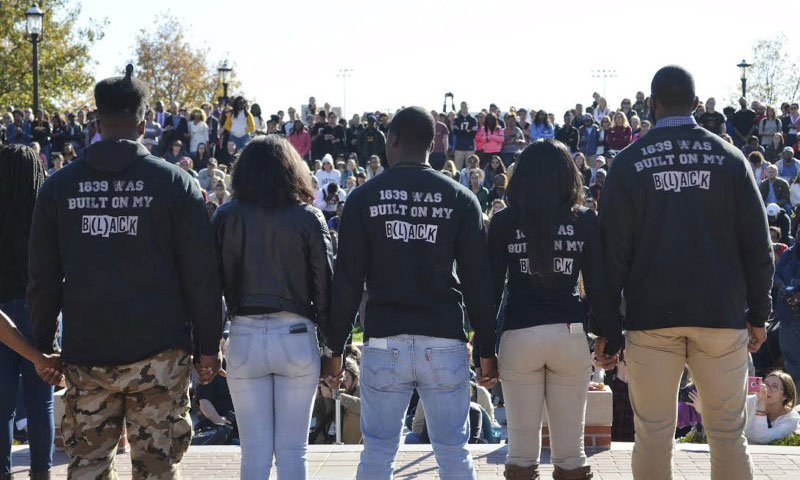
Missouri Protests Show Need for Chief Diversity Officer on University Campuses
Student-led protests at the University of Missouri regarding mismanagement of racial issues on campus led to the resignation of President Tim Wolfe and changes in university policy. Among them: the hiring of its first ever chief diversity, inclusion, and equity officer.
Following campus-wide protests that led to the resignation of University of Missouri System President Tim Wolfe last week, University of Missouri Board of Curators Chair Donald Cupps announced the university was “taking additional measures… to ensure that our campuses are free of acts of hatred” and “embody a culture of respect,” starting with the appointment of the school’s first ever chief diversity officer.
Tensions flared on campus in recent weeks after students held protests to show their disapproval with how then-president Wolfe handled racial issues on campus. Following Wolfe’s resignation, Cupps announced the board had created a series of initiatives to be implemented within the next 90 days, including the appointment of the University of Missouri system’s first-ever chief diversity, inclusion, and equity officer.
“Having a chief diversity officer is critical on campus,” National Association of Diversity Officers in Higher Education (NADOHE) President Dr. Benjamin Reese told Associations Now. This individual, who typically has a Ph.D. or J.D., and a strong background in diversity and inclusion, “provides leadership on diversity-related issues at a senior level,” said Reese, who is also vice president of the Office for Institutional Equity at Duke University.
A chief diversity officer’s work “really engages all of the ways students, staff, and faculty are different,” ranging from sexual orientation to cultural background to language to religion to gender, Reese said.
Faculty, staff, and students from a variety of backgrounds across the U.S. are “rightly calling for new commitment and comprehensive action to ensure that higher education will provide inclusive, respectful, and supportive environments for learners” from communities that are systemically underserved at all levels of the U.S. educational system, Association of American Colleges and Universities President Carol Geary Schneider said in a statement following the protests.
While Reese supports the university’s decision to create a chief diversity officer position, he said just having an individual in that role on campus is not enough. Other senior leaders, most notably the university president and chancellor, need to provide appropriate support and resources to that leader and work in collaboration with them. Reese added that if a campus is not supportive of the chief diversity officer, it’s likely the campus will be less inclusive and diverse.
Working to redress the “deepening divides that now characterize our democracy” begins with examining where we are as a society, in our own institutions, and “with a commitment to reversing the corrosive legacies of discrimination, marginalization, stigmatization, and violence in our society,” Schneider said.
While the number of chief diversity officers on college campuses in the U.S. is not currently known—although NADOHE will soon begin a survey to measure that—Reese said the number of chief diversity officers on college campuses was “steadily improving and increasing,” even before these most recent events, and that other campuses had recently created such positions following the latest news.
How the university responds right now “will define us,” University of Missouri system Interim President Mike Middleton, J.D. said in a statement. In order to move the university forward, Middleton encouraged university faculty, staff and students to “embrace,” with courage and conviction, the idea that “every member of our family deserves to be heard, deserves respect, and deserves equal access to a safe space where we can voice and explore our needs and feelings.”
Members of Concerned Student 1950 join hands at a press conference during protests last week. (Elizabeth Loutfi/The Maneater/Reuters)





Comments